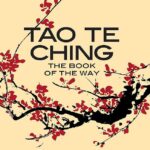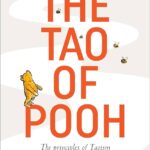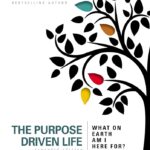Welcome, dear readers, to Thinkers Books. This is Robert N. Jacobs, your guide through the labyrinth of the world’s most thought-provoking literature. Today, we’re about to embark on an enlightening journey as we delve into the profound wisdom encapsulated in M. Scott Peck’s groundbreaking book, ‘The Road Less Traveled.’
Published by psychiatrist M. Scott Peck in 1978, ‘The Road Less Traveled’ has been a light in our understanding of personal growth and spiritual development. This book remarkably bridges the divide between traditional psychology and a more spiritual outlook on life, leading us to self-discovery, self-discipline, love, and grace.
‘The Road Less Traveled’ is partitioned into four sections – Discipline, Love, Growth/Religion, and Grace. Each section illuminates a unique facet of the human experience and offers insights into navigating life’s challenges with wisdom and resilience.
Peck commences with the section ‘Discipline,’ where he posits that life is inherently complex. He presents four tools of discipline: Delaying Gratification, Acceptance of Responsibility, Dedication to Truth, and Balancing. These tools aid in facing and resolving these difficulties, fostering personal growth.
In the following section, ‘Love,’ Peck redefines love as an action dedicated to nurturing one’s or another’s spiritual growth. This perspective shifts love from a mere feeling to a deliberate act.
The third section, ‘Growth/Religion,’ delves into the realm of spirituality, emphasising the importance of being open to questioning for spiritual and personal growth.
Lastly, in ‘Grace,’ Peck describes this mysterious force as a powerful, unseen catalyst for growth, manifesting through serendipitous events, miracles, or a sense of peace during turmoil.
Now, allow me to share my top 5 learning points from the book:
- Life is complicated, and accepting this reality helps us meet challenges more effectively: Peck starts his book with the line “Life is difficult” and explains that once we truly understand and accept this fact, we can transcend it. This doesn’t mean life becomes easy, but our perspective changes. Instead of viewing hardships as burdens, we see them as opportunities for growth, and our resilience is bolstered.
- Love is not just a feeling but an action aimed at spiritual growth: In Peck’s view, love is more than just a romantic or familial emotion. It’s a form of proactive behaviour that involves extending oneself to nurture one’s or another’s spiritual growth. This means love requires effort, discipline, and the ability to extend oneself beyond one’s comfort zone.
- Openness to questioning and challenge nurtures growth and development: Peck advocates for continuous exploration and challenging of ourselves and our beliefs. This openness allows us to confront our misconceptions, biases, and fears, leading to personal growth and spiritual development. Through this self-inquiry and introspection, we gain deeper understanding and wisdom.
- Grace is a powerful force that nurtures our spiritual growth and can be manifested in various ways: Grace, according to Peck, is an unseen force that aids our spiritual and personal growth. It’s not something that can be earned or warranted; it simply is. It manifests itself in myriad ways, such as sudden insights, feeling protected, or even fortunate events that lead us towards growth.
- Self-discipline, through tools like delaying gratification and accepting responsibility, is essential for personal growth: Peck believes self-discipline is fundamental for personal gain. This includes delaying gratification, i.e., the ability to postpone immediate pleasure for long-term benefits. It also involves accepting responsibility for our actions and their consequences rather than blaming others or circumstances. This sense of responsibility empowers us to take control of our lives and steer them towards growth and fulfilment.
‘The Road Less Traveled’ has been instrumental in bridging the gap between psychology and spirituality, providing a holistic approach to personal growth and mental health. This book deeply resonated with me, especially viewing life’s challenges as opportunities for growth. It’s not always an easy path, but as Peck reminds us, the road less travelled leads to proper development and fulfilment.
In conclusion, we invite you to continue exploring more summaries from Thinkers Books. We believe in the power of literature to shape minds and transform lives. As M. Scott Peck said, ‘Until you value yourself, you won’t value your time. Until you value your time, you will not do anything with it.’ So, value yourself and your time, and keep journeying down that less travelled road. Until next time, happy reading. Thank you.







